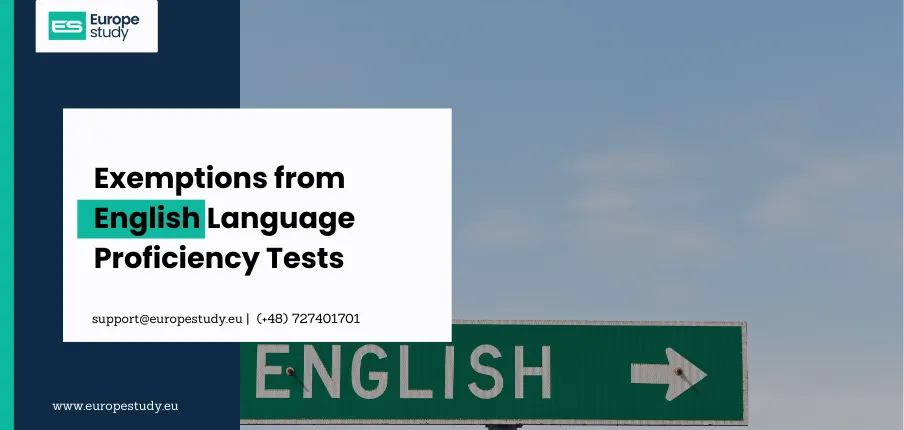
Exemptions from English Language Proficiency Tests
In some situations, applicants may be exempt from the requirement to take an English language proficiency test. The following circumstances are typically considered as exceptions:
1. Previous Studies in the EU/EEA: If you have completed prior studies within the European Union or European Economic Area (EU/EEA) and have earned at least 60 ECTS credits in courses taught in English, you may not need to provide additional proof of English proficiency.
2. English-Taught Courses in Specific Countries: If you have earned 60 credits from courses taught in English in any of the following countries, you may also be exempt from taking an English test:
- Antigua and Barbuda
- Australia
- The Bahamas
- Belize
- English-speaking regions of Canada
- Dominican Republic
- Grenada
- Guyana
- Jamaica
- New Zealand
- Saint Kitts and Nevis
- Saint Lucia
- Saint Vincent and the Grenadines
- Trinidad and Tobago
- The United Kingdom
- The United States
3. Students from African Countries: For students coming from Africa, the requirement to take an English test may be waived if you hold a 3-year Bachelor's degree from any of the following countries:
- Botswana
- Eritrea
- Ethiopia
- Gambia
- Ghana
- Kenya
- Lesotho
- Liberia
- Malawi
- Namibia
- Nigeria
- Sierra Leone
- Swaziland
- Tanzania
- Uganda
- Zambia
- Zimbabwe
These exceptions help simplify the application process for students who have already demonstrated their English proficiency through their previous education.





